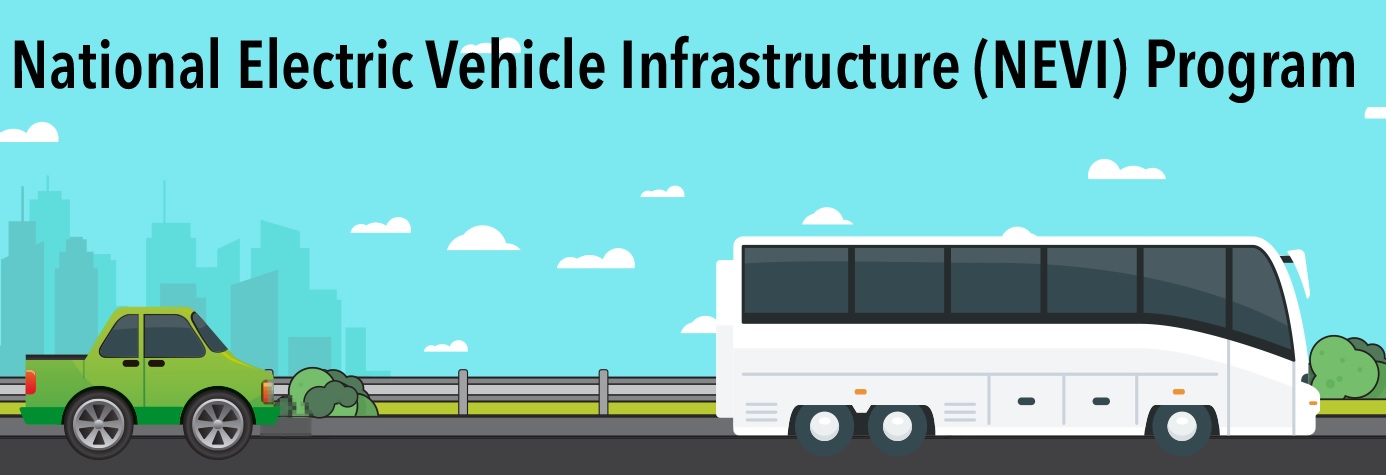ITSdigest
President Biden is jumpstarting the construction of a national network of 500,000 electric vehicle (EV) chargers by 2030, and the Federal Highway Administration announced a Notice of Proposed Rulemaking (NPRM) on proposed minimum standards and requirements for projects funded under the National Electric Vehicle Infrastructure (NEVI) Formula Program.

The minimum standards are intended to help ensure the national EV charging network is user-friendly, reliable, and accessible to all Americans, and interoperable between different charging companies, with similar payment systems, pricing information, charging speeds, and more.
The proposed rule would establish the groundwork for states to build federally-funded charging station projects across a national EV charging network.
No matter what kind of EV a user drives, what state they charge in, or what charging company they plug into, the minimum standards will ensure a unified network of chargers with similar payment systems, pricing information, charging speeds, and more.
FHWA proposed rules would require:
■ A seamless national network of EV charging infrastructure that could communicate and operate on the same software platforms from one state to another.
■ A minimum number of charging stations and type of chargers capable of supporting drivers' fast charging needs.
■ Consistency regarding the installation, operation and maintenance of NEVI Formula Program projects to provide the traveling public with reliable expectations for their charging experience.
■ Minimum density of provided chargers, payment methods and customer support services.
■ Standard communication to consumers of price and availability of each charging station to help consumers make informed decisions about trip planning and when and where to charge their EVs.
■ Traffic control devices and on-premise signage.
■ Data submittal requirements to help create a public EV charging database.
■ Network connectivity requirements to allow for secure remote monitoring, diagnostics, control, and updates.
■ Strong certification standards for the workers installing, operating, and maintaining electric vehicle chargers.
■ Workforce development and on-the-job training, building the clean energy workforce of the future.
The news follows a prior announcement of nearly $5 billion that will be made available to states over the next 5 years under the new NEVI Formula Program.
"To support the transition to electric vehicles, we must build a national charging network that makes finding a charge as easy as filling up at a gas station". said U.S. Transportation Secretary Pete Buttigieg. "These new ground rules will help create a network of EV chargers across the country that are convenient, affordable, reliable and accessible for all Americans."
"President Biden's Bipartisan Infrastructure Law provides states with both the funding and framework to build out a reliable charging network that gives more people the confidence they need to buy and use electric vehicles to travel from coast to coast and in every state in between" said Deputy Federal Highway Administrator Stephanie Pollack. "This is a foundational step that will provide EV drivers with predictable access to reliable electric vehicle charging access across the United States."
The proposed requirements will help states as they develop their EV deployment plans in concert with the Joint Office of Energy and Transportation, which was established by the Bipartisan Infrastructure Law and is providing direct technical assistance and support to help states with the $5 billion National Electric Vehicle Infrastructure program.
We're tackling range anxiety and vehicle charging deserts by making sure that charging stations are easily and equally accessible
"We're tackling range anxiety and vehicle charging deserts by making sure that charging stations are easily and equally accessible, allowing every American can get coast to coast in an electric vehicle," said US Secretary of Energy Jennifer Granholm.




